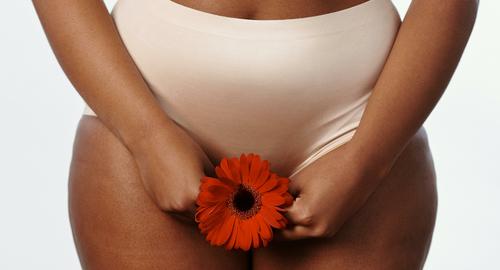
Nearly half the world has a vagina, yet myths about so-called feminine hygiene still thrive. Here is what science, not stigma, says about keeping your vulva and vagina healthy.
Myth 1: You need to deep-clean inside the vagina
You do not. The vagina is self-cleaning. Its natural pH is mildly acidic, and the resident microbiome helps keep harmful microbes in check. Douching or internal cleanses disrupt that balance and are linked to irritation and infection risk. The simple truth is that internal cleaning is unnecessary and can do more harm than good. Wash the vulva, the external area, with warm water. If you prefer a cleanser, choose a mild, fragrance-free, pH-appropriate option and avoid perfumed wipes and sprays.
Also see: Feminine hygiene tips you need to know
Myth 2: Any discharge or smell means something is wrong
Physiological discharge is normal and protective. Texture and amount change through the menstrual cycle and with hormones such as oestrogen, and a light, non-offensive odour is expected. Signs that deserve attention include a strong fishy smell, itching, pain, burning, or discharge that looks curd-like or greenish. If something feels off, book an appointment rather than trying to mask it with perfume. Breathable cotton underwear and changing out of damp gym kit or swimwear can help keep the vulva comfortable.

Myth 3: Strong soap keeps you extra clean
Not all bacteria are bad. Helpful vaginal bacteria protect against infection and help maintain that acidic pH. Harsh soaps and antiseptics can strip the skin and disrupt the microbiome, raising the risk of irritation, thrush or bacterial vaginosis. Gentle, microbiome-respecting care is best.
Myth 4: Intimate care only matters if you are sexually active or older
Vulval and vaginal care matters at every life stage. Puberty, periods, pregnancy, postpartum and menopause all shift hormones and pH, which influences discharge and susceptibility to irritation or infection. Medicines such as antibiotics, stress and tight clothing can also play a role. The baseline still stands: gentle external hygiene, stay aware of changes, and seek help early if symptoms persist.
Also see: Expert advice on what to eat for your vaginal health
Myth 5: Talking about vaginal health is embarrassing
Silence breeds stigma and poorer health. Open, factual conversation helps people recognise what is normal, what is not, and when to seek care. Access to accurate information and practical facilities still varies widely, and period poverty remains a barrier in many communities. Normalising this topic supports better outcomes for everyone.
What good care looks like
Keep it simple and kind to skin. Wash the vulva with warm water and, if you use a cleanser, make it fragrance-free and pH-balanced. Avoid douching and internal products. Choose breathable underwear and change out of wet clothes promptly. Book routine check-ups, and if you notice new pain, itching, bleeding, a strong odour or unusual discharge, see a healthcare professional. These straightforward steps support the body’s own defences and reduce unnecessary irritation.
Your vagina is designed to look after itself. Support it with gentle external hygiene, evidence-based habits and open conversation, and skip harsh products that promise freshness at the cost of your microbiome. If something changes and worries you, medical advice beats myths every time.
Compiled by Jade McGee
First published on Woman and Home
Also see: 5 Underwear mistakes that can affect vaginal health




